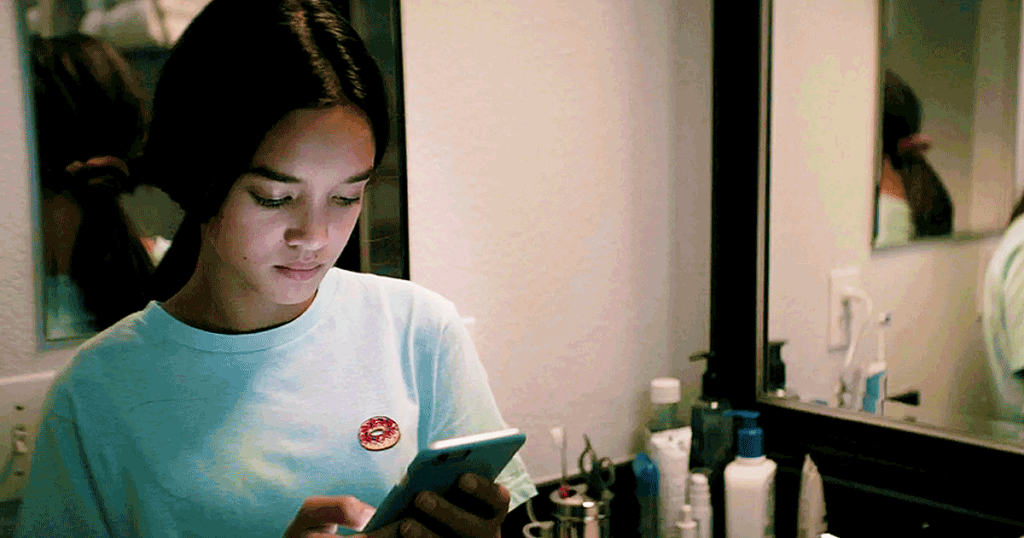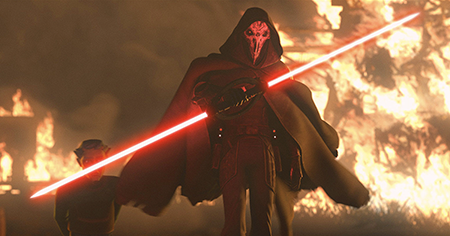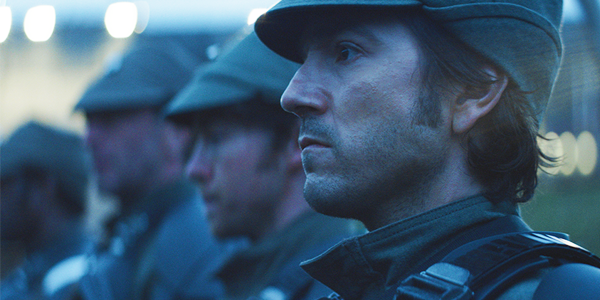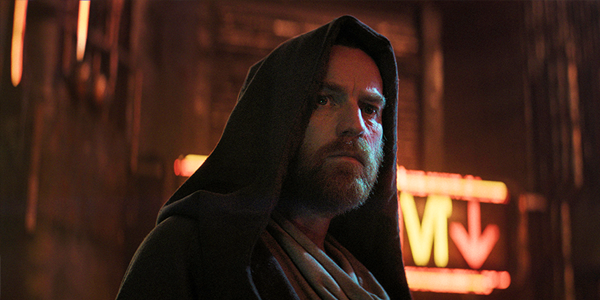
review | The Social Dilemma
This Netflix docudrama on the dangers of social media is so eager to please it nearly undermines its own arguments
by Dennis Burger
September 14, 2020
Netflix’ The Social Dilemma is one of the most frustrating viewing experiences I’ve had in ages—frustrating because it has a really important message to convey, but sometimes undermines that message with cutesy animation and heavy-handed musical accompaniment. It’s also frustrating because it wants to be equal parts documentary and drama, but fails in the latter respect. And it’s frustrating because I wanted to write it off entirely but ended up being won over despite my better judgment. But most of all, it’s frustrating because it relies on some of the same tactics it decries.
As you could probably ascertain from its title, The Social Dilemma is about the dual-edged sword of social media and the impact it’s having on society. What makes the documentary aspect of the film work as well as it does is the reliance on Silicon Valley experts like Tristan Harris and Aza Raskin, who helped create the very tools that they’re now warning us about.
Harris—co-founder of the Center for Humane Technology and the “closest thing Silicon Valley has to a conscience,” according to The Atlantic—dominates the film with a series of cogent explanations about how the algorithms that drive everything from Google searches to Facebook interactions work. On the upside, he’s given a lot more room to breathe here than in his famous TED Talk on the subject, allowing him to connect some dots I’ve never seen connected before, at least not in the way they’re connected here.
But for every illuminating observation from Harris, The Social Dilemma feels compelled to spoon-feed the viewer a disjointed dramatic narrative that feels like the mutant child of an ABC Afterschool Special and one of those awful Chick Tracts that used to litter the gutters of New Orleans.
It’s in these dramatizations that The Social Dilemma commits its greatest sin: Assuming the stupidity of the viewer. The story here is about a family whose two youngest children are being harmed by social media—one child whose entire sense of self-worth is based on “Likes” in response to photos she posts, the other who ends up sliding down the slippery slope of fake news and becoming radicalized.
Handled well, I suppose it could have worked. But in attempting to explain how the algorithms that encourage engagement trap users in a dopamine-driven feedback loop, the filmmakers decided to anthropomorphize these algorithms and give them dialogue, à la a twisted techie version of Pixar’s Inside Out.
This takes what is genuinely a malignant phenomenon and turns it into a seemingly malicious one, which undermines a lot of the film’s messaging. It also directly contradicts the views of the experts, who do a much better job of explaining the nuances of these wholly impersonal algorithms and the way they manipulate users to generate revenue, engagement, and growth. But nuance doesn’t suffice these days, I suppose, so we end up with these wholly unnecessary abstract dramatizations that do little more than confuse the uninitiated and drag down the film.
By the time its closing credits rolled, though, The Social Dilemma won be back with a well-developed conclusion that cuts straight to the heart of the divisiveness, anxiety, depression, suicide, social upheaval, and general discord sowed by social media—as well as some of the upsides of this technology. I wish some of this balance had been sprinkled more evenly through the rest of the film, because we can’t have an honest conversation about the impact of social media without covering the good as well as the bad (although, full disclosure: I’m a little biased in this respect since Facebook was responsible for my reunion with my daughter).
If the entire 94-minute running time of The Social Dilemma had lived up to the quality of the last 10 minutes or so, it would be much easier to recommend. But I’m left with a dilemma of my own here, because I think the message of the film is so important that you should view it despite its flaws. Just go in armed with the knowledge that director Jeff Orlowski employs some of the same psychological sleight-of-hand the film warns us about.
As for the presentation of the film itself, Netflix delivers The Social Dilemma in Ultra HD without HDR10 or Dolby Vision high dynamic range. As soon as I noticed this, I deliberately kept an eye out for the sort of visual artifacts inherent in high-efficiency streaming without HDR—banding, crushed blacks, poor shadow detail, etc. Surprisingly, I couldn’t see them, which makes me think Netflix may be employing a higher-than-usual bitrate for the film, but I’m just speculating. Whatever the explanation, it points to the fact that streaming services are constantly evolving in terms of quality of presentation. Even just a couple years ago, Netflix would have had to stick this SDR film in an HDR container to deliver a stream this artifact-free.
The Dolby Digital+ 5.1 soundtrack has a lot of overbearing sound effects and a generally doom-and-gloom score that could have easily gotten out of hand with the wrong sound mixer. Thankfully, it’s a mostly front-channel affair, and dialogue clarity is topnotch. It should sound fine whether you’re watching on a full-fledged home cinema system or a simple soundbar.
Again, I’m of two minds here: I want you to watch The Social Dilemma, but I also want you to know what you’re getting into. It’s a significantly flawed film, but it’s also an important one. If the hypnotic animation and ham-fisted dramatizations are too much for you to stomach, though, I highly recommend watching Tristan Harris’ TED Talk instead. It doesn’t connect the dots nearly as effectively as does The Social Dilemma, and it isn’t nearly as well-produced, but it also isn’t burdened by all the saccharine fluff that mires this docudrama.
Dennis Burger is an avid Star Wars scholar, Tolkien fanatic, and Corvette enthusiast who somehow also manages to find time for technological passions including high-end audio, home automation, and video gaming. He lives in the armpit of Alabama with his wife Bethany and their four-legged child Bruno, a 75-pound American Staffordshire Terrier who thinks he’s a Pomeranian.
PICTURE | Netflix delivers The Social Dilemma in UHD without HDR10 or Dolby Vision high dynamic range and yet the presentation is artifact-free
SOUND | Mostly a front-channel affair with topnotch dialogue clarity, the Dolby Digital+ 5.1 soundtrack should sound fine whether you’re watching on a full-fledged home cinema system or a simple soundbar
© 2025 Cineluxe LLC





